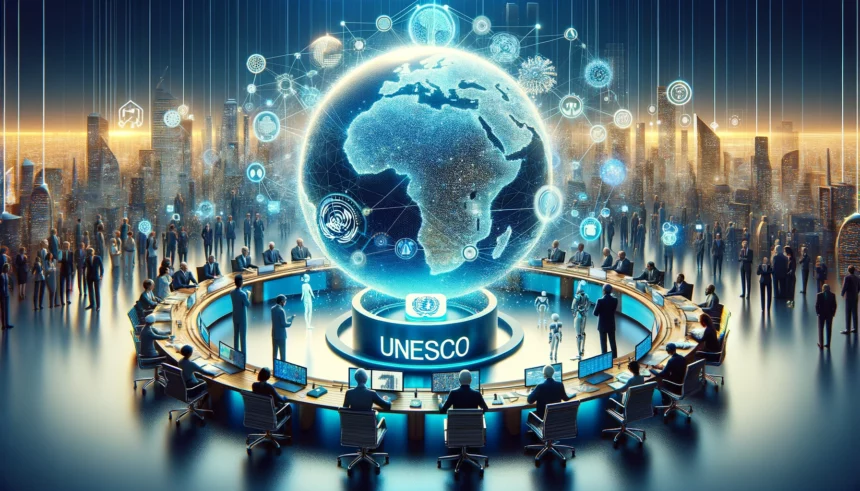In a world captivated by the rapid advancement of artificial intelligence (AI) technologies like the latest iteration of ChatGPT, global leaders are now stepping up to ensure these powerful tools are harnessed responsibly. With backing from UNESCO, the UN’s educational, scientific, and cultural organization, nations are working together to craft regulations that could shape the future of AI usage worldwide.
Back in 2021, amidst the global turmoil caused by the COVID-19 pandemic, UNESCO laid the groundwork with its Recommendations on the Ethics of Artificial Intelligence. This framework, adopted unanimously by the 194 UNESCO member states, offers a roadmap for directing public and private investments towards AI developments that promise to enrich society.
Efforts to translate these recommendations into actionable policies have been ongoing, bringing together policymakers, industry experts, and activists in forums hosted by UNESCO. These gatherings serve as a platform for sharing progress and challenges in integrating ethical considerations into AI development and deployment.
One such forum took place in Slovenia in early February 2024, attracting attention and participation from a diverse group of stakeholders. Among them were Aisen Etcheverry, Chile’s Minister of Science and Technology; Irakli Khodeli, who heads UNESCO’s AI Ethics unit; and Mary Snapp, Microsoft’s Vice President of Strategic AI Initiatives.
Etcheverry shared insights into Chile’s proactive approach to AI regulation, highlighting the country’s early adoption and implementation of UNESCO’s recommendations. By the time ChatGPT made headlines, Chile already had the infrastructure, expertise, and regulatory framework in place to engage with the ethical dilemmas posed by AI. The government’s commitment to responsible AI usage is exemplified by initiatives like the executive order guiding AI applications within public services to enhance efficiency without sacrificing the human touch that underpins public sector interactions.
The conversation then turned to the broader implications of AI, touching on the necessity of safeguarding citizens from potential misuse. Etcheverry pointed out the importance of public consultation and education in developing thoughtful AI regulations and addressing the digital divide that leaves many without access to these transformative technologies.
Khodeli, from UNESCO, emphasized the role of the Recommendations in bridging the digital divide, underscoring the principle that the benefits of scientific progress, including AI, should be shared equitably across the globe. This vision aligns with the goal of using AI to support socio-economic and developmental objectives worldwide, not just in technologically advanced nations.
Mary Snapp from Microsoft reflected on the dual nature of technology as both a tool for enhancement and a potential weapon. Drawing parallels with historical innovations, she stressed the importance of early collaboration between the tech industry and regulatory bodies to preemptively address possible negative impacts of AI while unlocking its vast potential for good.
In a significant move at the UNESCO meeting, Microsoft committed to ethical AI development, a pledge that aligns with its establishment of an office of responsible AI in 2019. This team, which includes a diverse mix of experts from various fields, engages in proactive measures like “red teaming” to identify and mitigate potential harms, fostering a culture of responsibility and shared ethical principles within the tech industry.
As nations and corporations align with UNESCO’s ethical AI framework, the collective journey towards a future where AI serves humanity’s best interests continues. This global dialogue, enriched by contributions from diverse voices, lays the groundwork for AI technologies that empower rather than endanger, ensuring that the digital revolution benefits all of humanity.
















